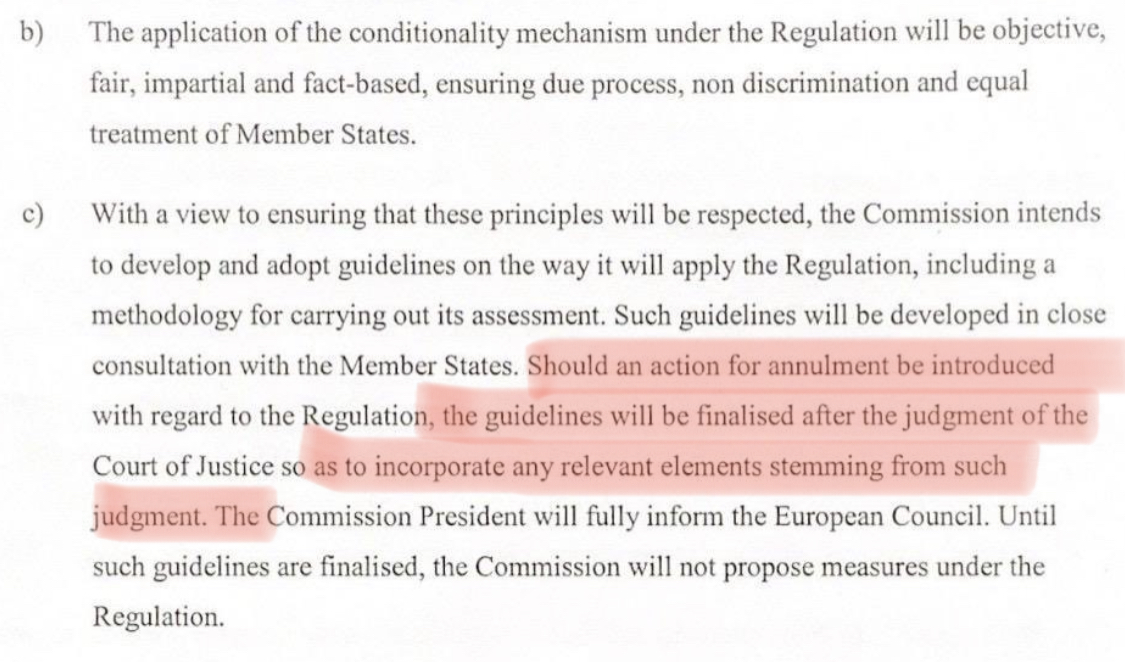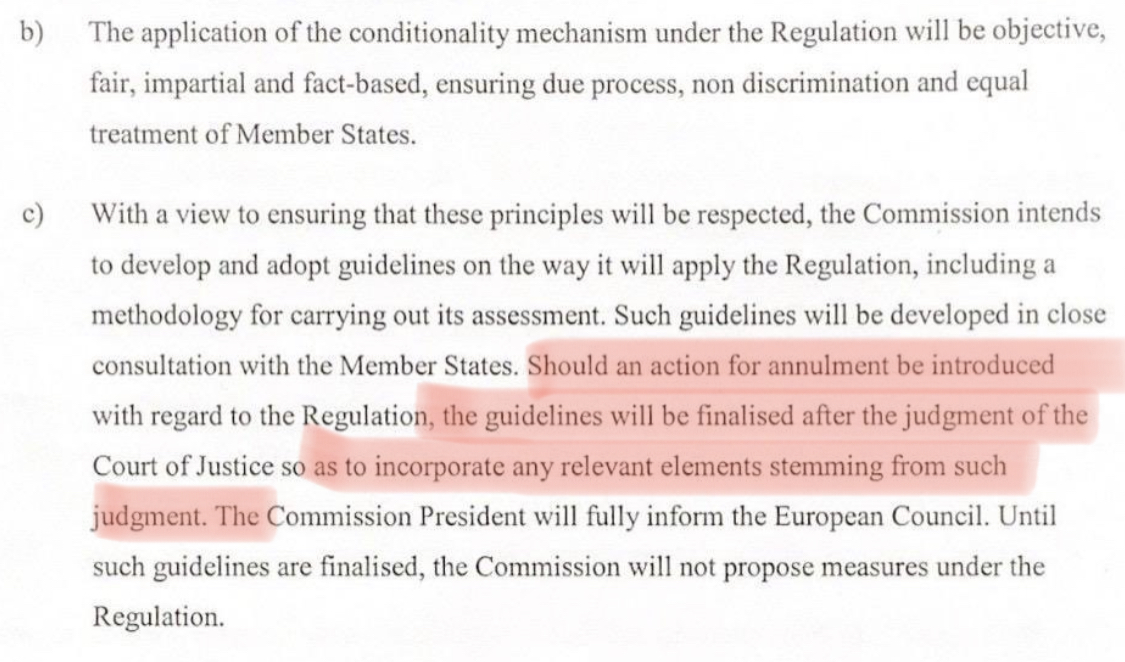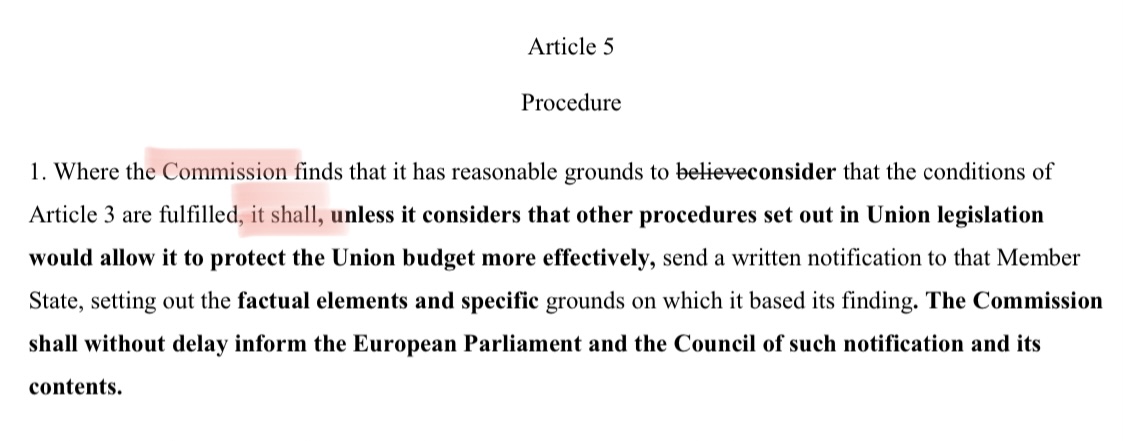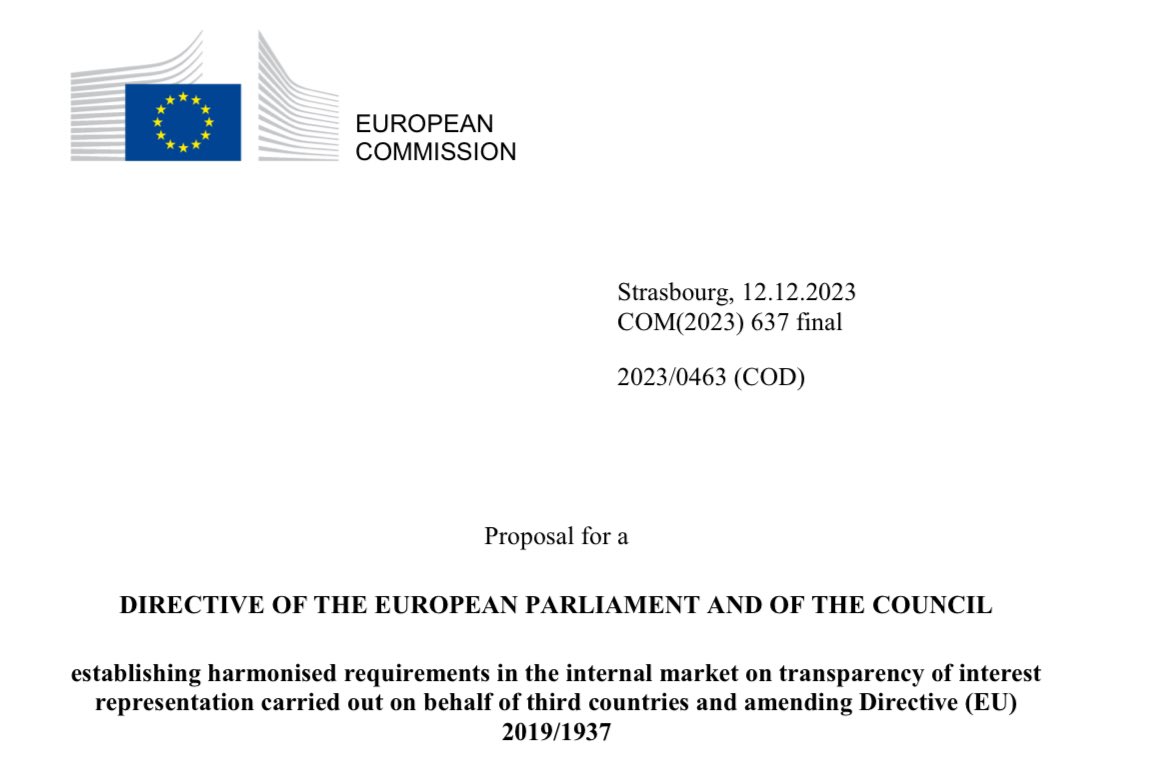Hungary/Poland lift their veto on EU budget, after being reassured that new #RuleOfLaw mechanism won't be applied to them until a judgment of ECJ will define 'methodology' to be applied.
This is not only unprecedented, but also LEGALLY questionable THREAD #EUCO 1/
This is not only unprecedented, but also LEGALLY questionable THREAD #EUCO 1/

The draft #EUCO Conclusions, a non-legally binding political declaration, de facto suspend application of #RuleOfLaw mechanism.
As such, notably point 2 c), could be challenged by an EU institution, such as the European Parliament, before @EUCourtPress as ULTRA VIRES 2/
As such, notably point 2 c), could be challenged by an EU institution, such as the European Parliament, before @EUCourtPress as ULTRA VIRES 2/

Regardless of whether #EUCO conclusions will be challenged, the inaction of the Commission while omitting to apply #RuleOfLaw mechanism pending the Court's judgement might also be challenged before the ECJ.
Art. 5 of the rule of law mechanism says that the Commission "shall" 3/
Art. 5 of the rule of law mechanism says that the Commission "shall" 3/

Ultimately, it is quite paradoxical that rule of law perpetrators use the ECJ to delay the application of a mechanism aimed at enforcing the respect of #RuleOfLaw
I expect the Court to be sympathetic to anyone who will challenge #EUCO and Commission's omission to act 4/
I expect the Court to be sympathetic to anyone who will challenge #EUCO and Commission's omission to act 4/
To breach the rule of law in an attempt to save the rule of law is quite a noticeable endeavor by the Union
5/ #ruleoflaw #mff #eubudget #Hungary #Poland
5/ #ruleoflaw #mff #eubudget #Hungary #Poland
The #EUCO interpretative statement, if adopted, in breach of:
- principle of legality: EUCO can’t decide for Commission and suspend act
- principle of legal certainty: rules must be clear
- ultimately #ruleoflaw
on.ft.com/3oENu8K 6/
- principle of legality: EUCO can’t decide for Commission and suspend act
- principle of legal certainty: rules must be clear
- ultimately #ruleoflaw
on.ft.com/3oENu8K 6/
The #EUCO interpretative statement displays unprecedented disregard for ECJ:
- the Court’s job is not to define methodologies, but to verify the legality of EU law and ensures its consistent interpretation
- if I were Hu/P, I’d think it twice before going to Court 7/
- the Court’s job is not to define methodologies, but to verify the legality of EU law and ensures its consistent interpretation
- if I were Hu/P, I’d think it twice before going to Court 7/
8/ Council legal services rubber stamps #euco legal abomination / how smart
https://twitter.com/alemannoeu/status/1337732810463797249
• • •
Missing some Tweet in this thread? You can try to
force a refresh












